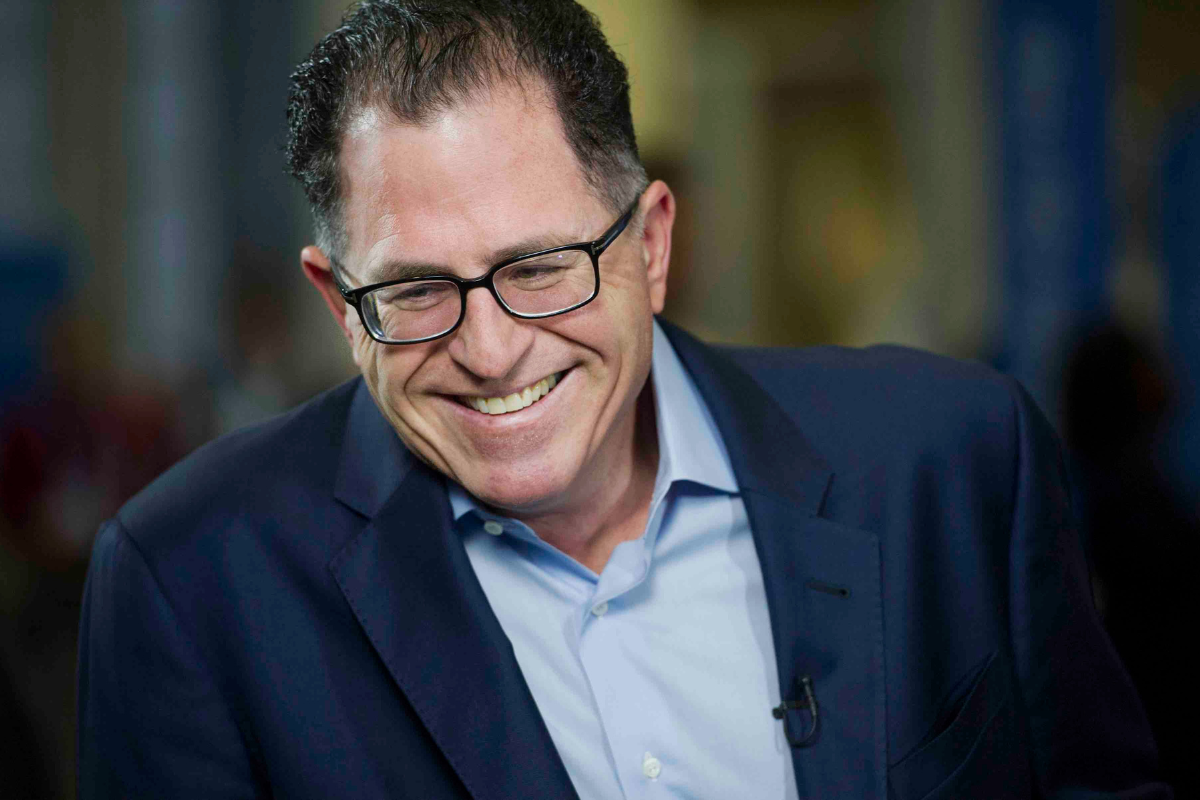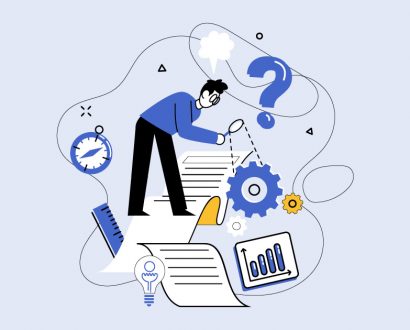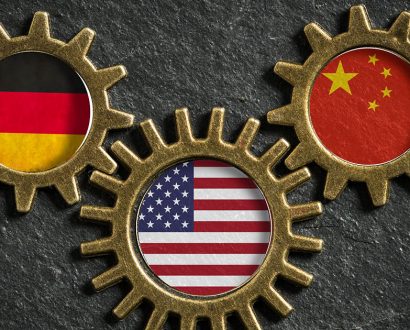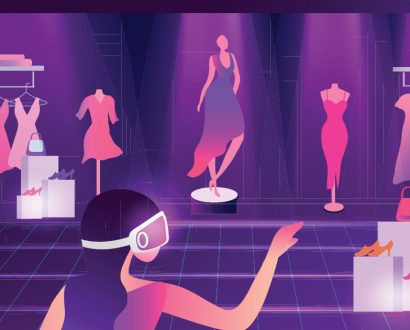Michael Dell has spent his entire life picking apart conventions and disrespecting boundaries to explore what might be possible.
His maverick tendencies have served him well. As the Founder and CEO of his eponymous computer corporation, he’s one of the 25 richest people on Earth with an estimated net worth of US$51 billion.
Dell Technologies has the rare distinction among big tech companies of staying relevant and at the cutting edge of innovation for nearly all of its 39 years. Dell himself has described it as the “world’s biggest startup”.
In just the past six months, the company has launched a new generation of ultra-fast PowerEdge servers and a limited-edition quantum computing package that will boost AI processing capacities to new levels, reinventing the digital landscape and fundamentally altering the expertise required from IT teams.
Challenges and changes
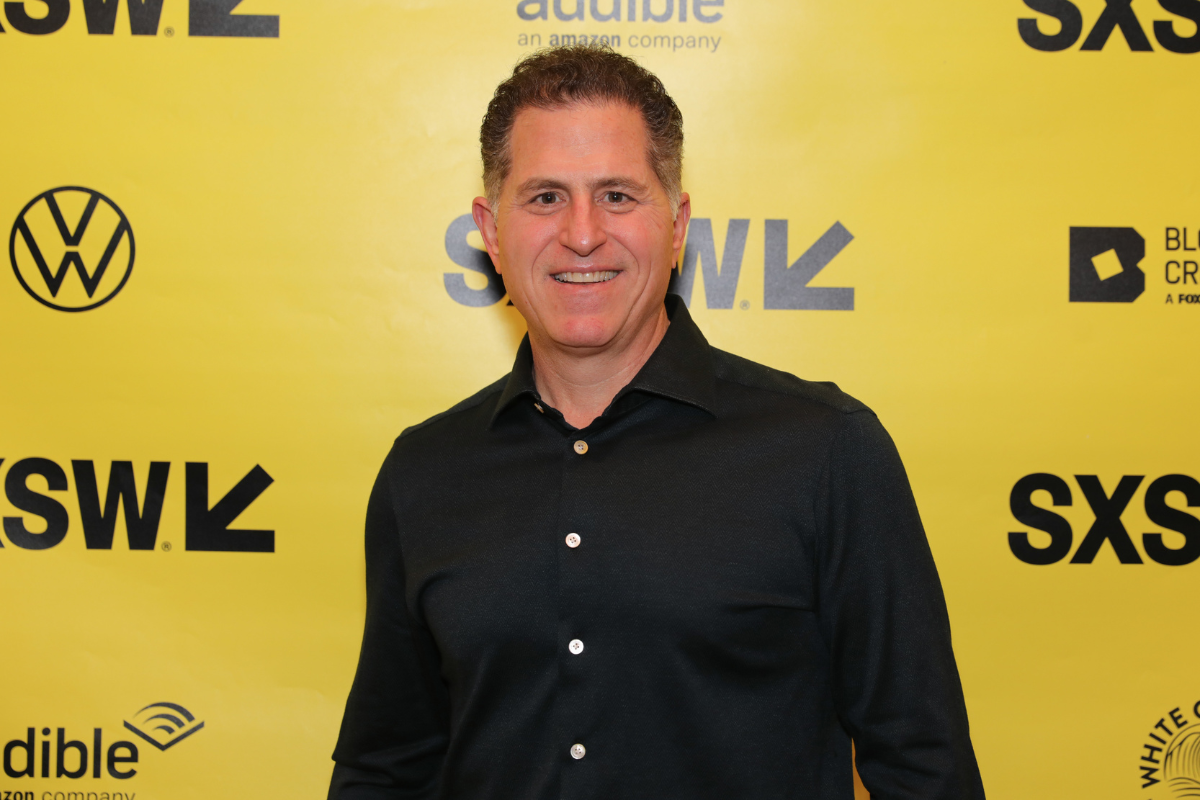
“The rate of change isn’t going to slow, so reskilling and retraining are incredibly important because the shelf life of a given skill is shrinking. This is a really difficult challenge for society,” Dell says.
“If ever you look back, unexpected change happens quite predictably, but you never know what it’ll be until it happens. I’m fearful there will be potentially epic cyber challenges, as there may be incredible vulnerabilities and dangerous problems as we move rapidly to an increasingly interconnected world.”
Hence the urgency he attaches to harnessing AI to design business strategies that not only anticipate future problems, but solve them before they even emerge.
“If ever you look back, unexpected change happens quite predictably, but you never know what it’ll be until it happens.”
“Most of the world’s computing capacity will be taken up by machine learning systems that currently only exist in laboratories,” Dell said at the PowerEdge launch in January. “That’s the only way you can make sense of the amount of data that’s being created.
“We have systems in our labs that are two-to-three times faster than anything available. That’s the kind of performance that’s going to be needed – systems built for AI-first are inevitable.”
Among them will be the newly available cloud-based software for quantum computing. He’s convinced that the concept – where subatomic particles are manipulated to perform calculations using principles of quantum mechanics – will be the next major technology to break into the mainstream.
Specialized hardware would have the potential to almost instantly solve problems that would take the most powerful traditional computers thousands of years. Dell Technologies CTO John Roese said in January that major firms should start investing this year or risk missing that technology wave.
High roller
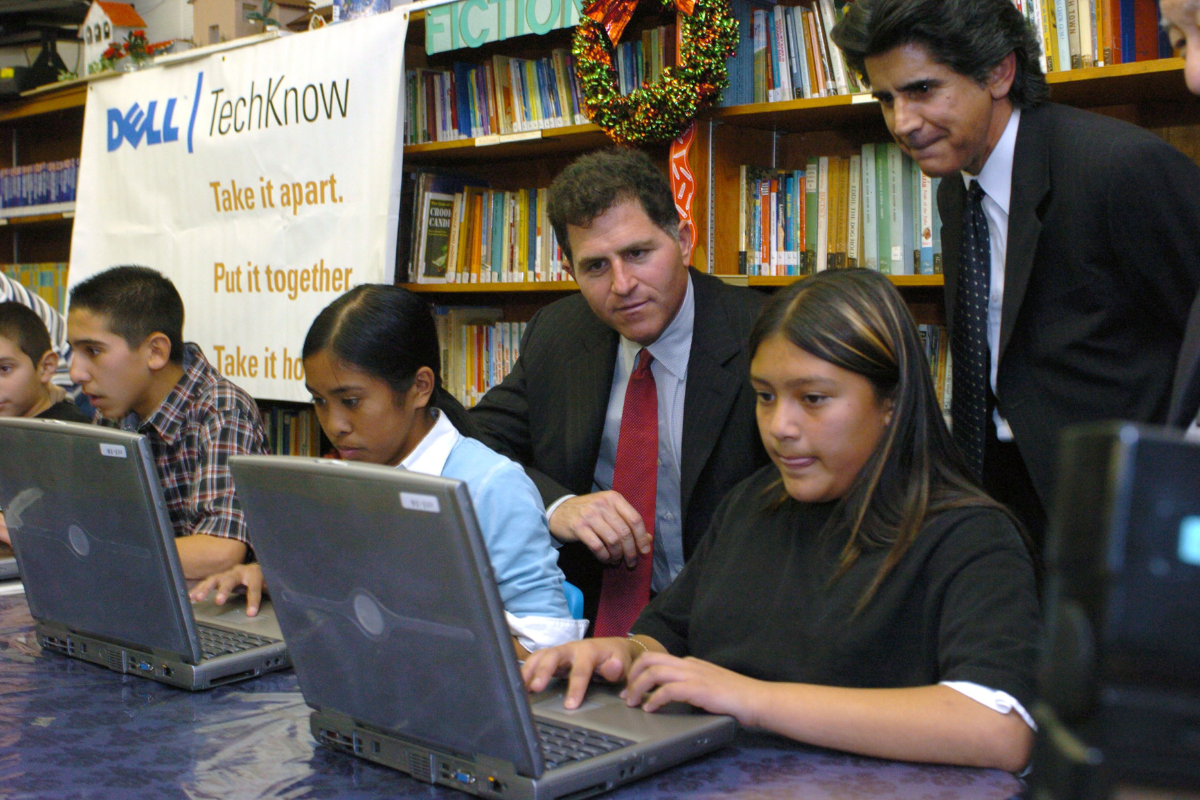
For Dell himself, not diving in to catch such a wave would be unthinkable. He’s spent his whole career instinctively recognizing which breakers he can ride majestically into shore and which might end in an unseemly wipeout.
His company’s youthful inquisitiveness and impatience with status quos can be traced back to his childhood in Houston, Texas. At seven, his favorite toy was a calculator, and a year later he took his high school entry exam, assuming it would mean he could finish school sooner and enter the business world.
When he got part-time jobs in his early teens, he didn’t buy bubblegum or baseball cards with his earnings – he invested in stocks and precious metals. It meant that by the age of 15, he’d saved up enough to buy his first computer.
“Leadership is all about learning. If you’re not curious, you’re doing it wrong.”
“When Apple had come out with the Apple II, I had to have one,” he told The Growth Faculty. “As soon as I got it, I took it apart! That’s what I did with everything that had electrons going through it in our house.
“My mom and dad were very upset with me as I was taking apart telephones, televisions and radios. I couldn’t appreciate them unless I could see how they worked. I wasn’t on the football or basketball team. I was a computer nerd!”
The final frontier
There’s one area where Dell is very much not planning to follow the example of other prominent billionaires – the race into space.
“Oh no, I love Earth too much,” he says with a smile when asked if he has any galactic ambitions. “If you want to visit a harsh environment, try Antarctica.
“I’m supportive of the interplanetary objectives of Elon [Musk] and others, but I’m more of a fan of protecting this planet – it’s the best one I’ve seen so far! I plan to keep my feet firmly on the ground.”
In many ways he still is, and part of his stratospheric rise to the top is down to that insatiable desire to peer inside things to comprehend their potential.
“Leadership is all about learning. If you’re not curious, you’re doing it wrong. Whenever I encounter something new, I try to understand it. That’s a great life philosophy for me. It’s about listening and thinking from a new perspective, asking questions, keeping a beginner’s mindset,” he reflects.
His parents wanted him to become a doctor so he begrudgingly studied medicine at university, taking a casual job selling newspaper subscriptions to support himself. Ever the disruptor, he devised an algorithm to better target likely readers and made an unheard-of US$18,000 in a single summer.
Med school drop-out
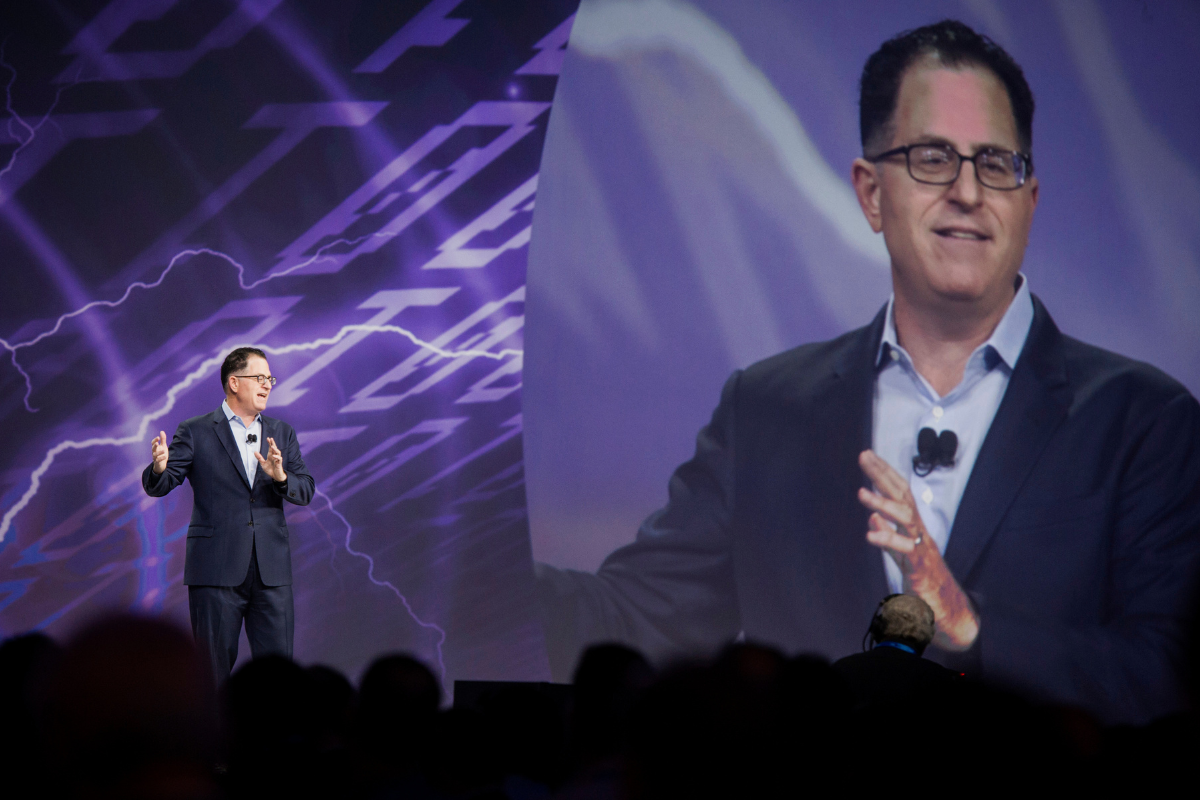
Soon Dell was also selling kits to upgrade personal computers, and even took on staff to keep up with demand. When the newly formed Dell Computer Corporation made a profit of US$200,000 in 1986, the 21-year-old dropped his studies and moved his fledgling operation into a local business center.
Within six years, he was the youngest CEO of any company on Fortune magazine’s list of the top 500 corporations, and just four years later, the company’s income exceeded US$1 million a day.
“It’s the giant United States tech companies that should be leading the global push toward sustainability.”
“You don’t have to be a genius or a visionary or even a college graduate to be successful,” Dell once said. “You just need a framework and a dream. But you must find something you’re passionate about. Don’t start a business just because everybody else is doing it or it looks like it’s a way to make a lot of money.”
The fact that Dell Technologies is the 31st-biggest company in the United States, with annual revenue of over US$100 billion, proves that his dream is very much alive, and he still feels every bit as passionate about fulfilling it as he did the day he opened for business. The only thing that’s changed is the scale of his ambitions.
“We are explorers, pioneers of a digital future, constantly reinventing and reimagining a data-driven world to accelerate progress toward a healthier, safer, more successful future in all human endeavors,” he declared in 2022 at the Dell Technologies World conference in Las Vegas.
Social impact goals
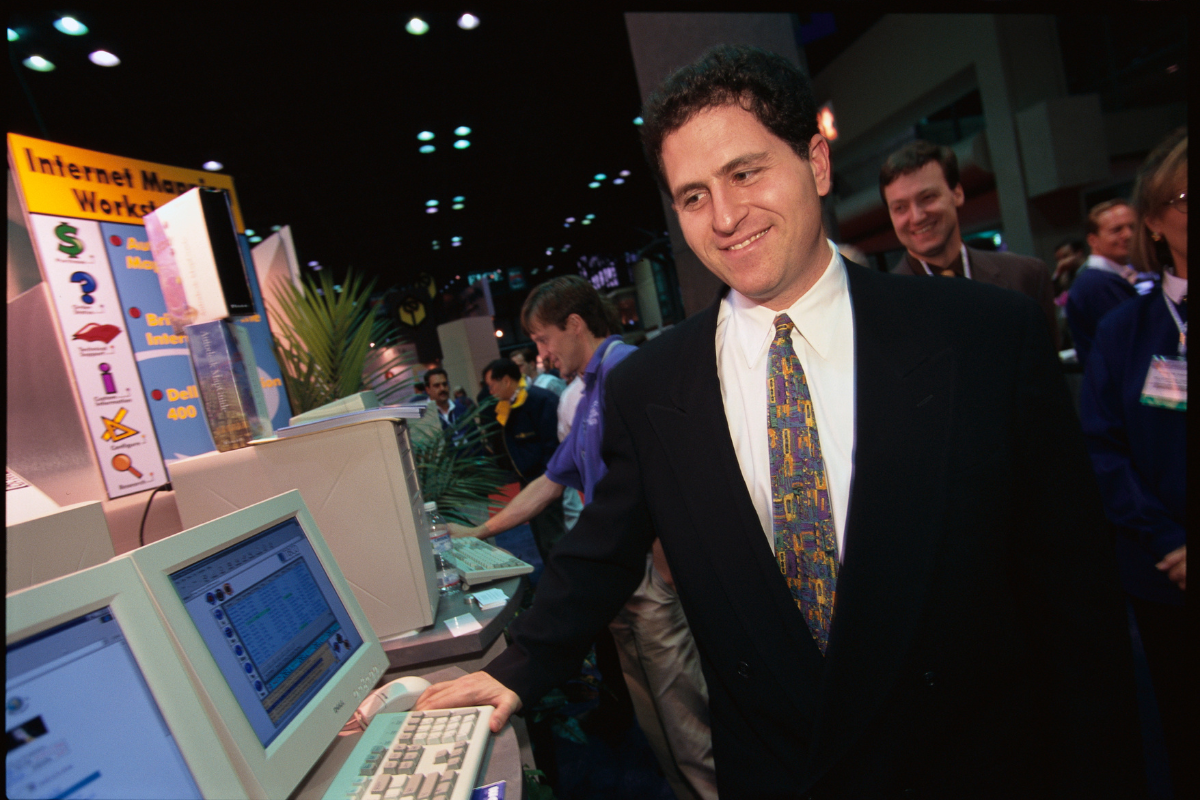
Dell’s stated mission is to put his company front and center of the race to improve lives through emerging technologies and more sustainable practices.
“It’s the giant United States tech companies that should be leading the global push toward sustainability,” he says.
“There’s a lot of scientific research going into reimagining a more carbon-efficient and cleaner future.”
“More and more companies of all sizes are voluntarily setting aggressive social impact goals. There’s certainly a role for governments, but as a self-admitted capitalist, I think a lot more progress will come from voluntary efforts that companies subscribe to themselves.
“We’ve always challenged our engineers to find ways to be more sustainable, more circular and to recycle more, and they get really excited because they know that if we’re selling 800 million of something, they can make improvements at scale, which is a good reason to get out of bed each morning.”
Having failed to achieve the social impact goals it set itself in 2010, Dell has committed to more aggressive targets for the coming decade.
“We made a lot of progress, but we didn’t achieve them all. We knew when we set them that we’d have to innovate and invent, and now we’re going to have to do that some more. There’s a lot of scientific research going into reimagining a more carbon-efficient and cleaner future,” he admits.
To that end, all Dell packaging is now recycled, and the company has ramped up efforts to reuse components from old computers so that half of everything it produces will be from a renewable source by 2030. It’s also pledging that half of its staff will be women by then.
Inclusive skills
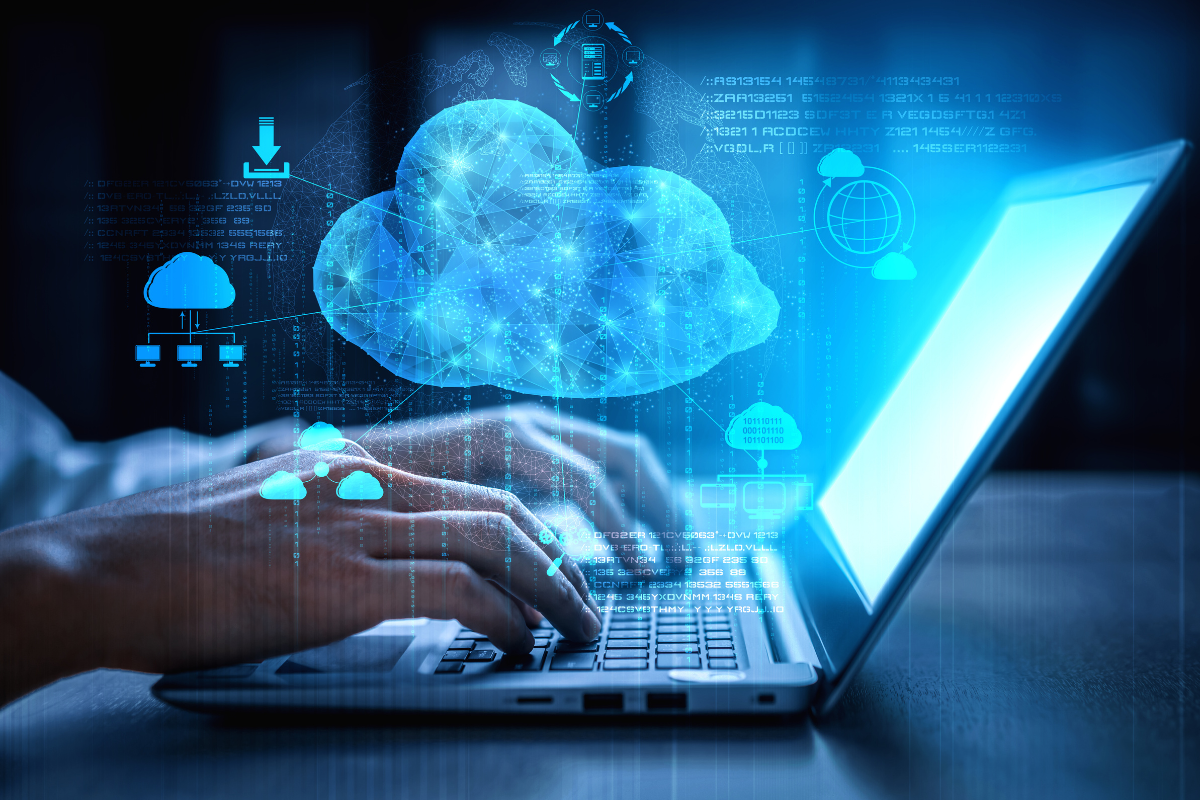
For Dell, prioritizing ESG will go some way to solving perhaps the biggest challenge facing the technology sector – the worldwide skills shortage.
“They’re definitely linked. We have eight billion people and not all of them participate in the economy. We need to train, upskill and reskill while widening the aperture around diversity and inclusion. That’s the only way the economy’s going to grow – it won’t be through rotating the same people around existing companies,” he explains.
Cloud cover
“We’re taking the next leap forward with a multicloud ecosystem that encompasses ‘the edge’ in which AI processes and moves data across 5G networks in highly automated environments,” Dell said in his 2022 keynote speech at the Dell Technologies World conference.
‘Multicloud’ involves operating applications by utilizing a combination of private, public and edge clouds that together speed up data delivery, enhance automation and improve customer service. It’s already used by over 90 percent of Dell customers.
All of which means storing and analyzing information on-premises is no longer feasible.
“That debate is over,” he cautioned. “The future is multicloud with workloads and data flowing seamlessly across the entire environment. 5G handling volumes of data at the edge is a huge catalyst.”
The frustration in his voice is palpable, but so is that same determination to push through barriers that he’s had since he hatched his plan to quit school at eight. And he knows that there’s a lot at stake.
“Technology is changing faster than at any time in history, but it’s also changing more slowly than it will at any time in the future. Everything that’s happened to date is just a pre-game show for what’s coming up,” he says.
“Technology is changing faster than at any time in history, but it’s also changing more slowly than it will at any time in the future.”
“Right now, everything in the physical world is becoming intelligent and connected, and generating data that will let us reframe every aspect of society and create better outcomes.
“We’re super excited and optimistic that most of it will lead to a tremendously enhanced human potential. We just have to make sure these technologies reflect our humanity and we don’t just let them run amok in uncontrolled ways.”
The CEO Magazine was invited to submit questions to Michael Dell as part of a live Growth Faculty event in October 2021. Parts of this feature relate to Dell’s responses to those questions.

